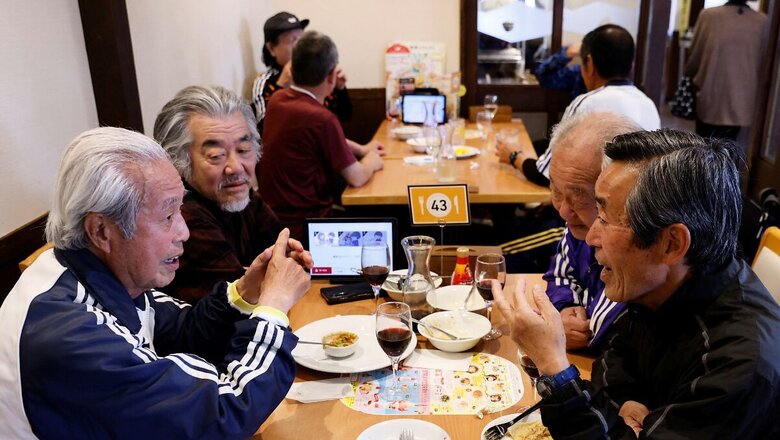
views
A Japanese diaper manufacturer announced it will end production of baby diapers in the country to focus on the adult market, reflecting the country’s aging population and declining birth rates. Oji Holdings is the latest company to make this shift, citing the trend of adult diaper sales surpassing those of infants.
Last year, Japan saw a record low of 758,631 births, a 5.1 percent decrease from the previous year and the lowest figure since the 19th century. Oji Holdings subsidiary, Oji Nepia, currently produces 400 million infant diapers annually, down from a peak of 700 million in 2001, according to the BBC.
READ MORE: One in 10 Japanese Are Aged 80 or Older For The First Time
Japan’s largest diaper maker, Unicharm, noted in 2011 that adult diaper sales had exceeded those for babies. The adult diaper market is estimated to be worth over $2 billion, reflecting Japan’s status as one of the world’s oldest populations, with nearly 30 percent aged 65 or older.
While Oji Holdings will continue baby diaper production in Malaysia and Indonesia, Japan grapples with the consequences of an aging society and dwindling birth rates. Despite government efforts to boost birth rates through child-related programs and subsidies for young couples, there has been little success.
Factors contributing to Asian country’s demographic challenges include declining marriage rates, more women joining the workforce, and the rising costs of child-rearing. Prime Minister Fumio Kishida warned of the societal implications, stating Japan stands on the verge of whether it can continue to function as a society.
Japan’s fertility issues are mirrored in other East Asian countries like Hong Kong, Singapore, Taiwan, and South Korea, which also face declining birth rates. More than 10 percent of Japanese people have crossed 80 years or older for the first time, official data showed in September last year.
Government data released also showed that the share of Japan’s population at 65 or older expanded to a record 29.1 percent from 29.0 percent a year ago. According to Japan’s internal affairs ministry, the level compared with second-ranked Italy’s 24.5 percent and third-ranked Finland’s 23.6 percent.
“Japan has the highest percentage of elderly population in the world,” the ministry had said. For decades, Japan has seen its population shrink and grow older as young people delay marriage and children largely due to unstable jobs and economic difficulties.
Japan has been facing ballooning costs for elderly care with not enough young people to fill jobs and pay for social and welfare programmes. The Japanese government is concerned about the baby boomer population turning 75 or older. Japan’s 124.4 million people are continuing to grow older, with around 12.59 million aged 80 or older, while 20 million are 75 or older.




















Comments
0 comment